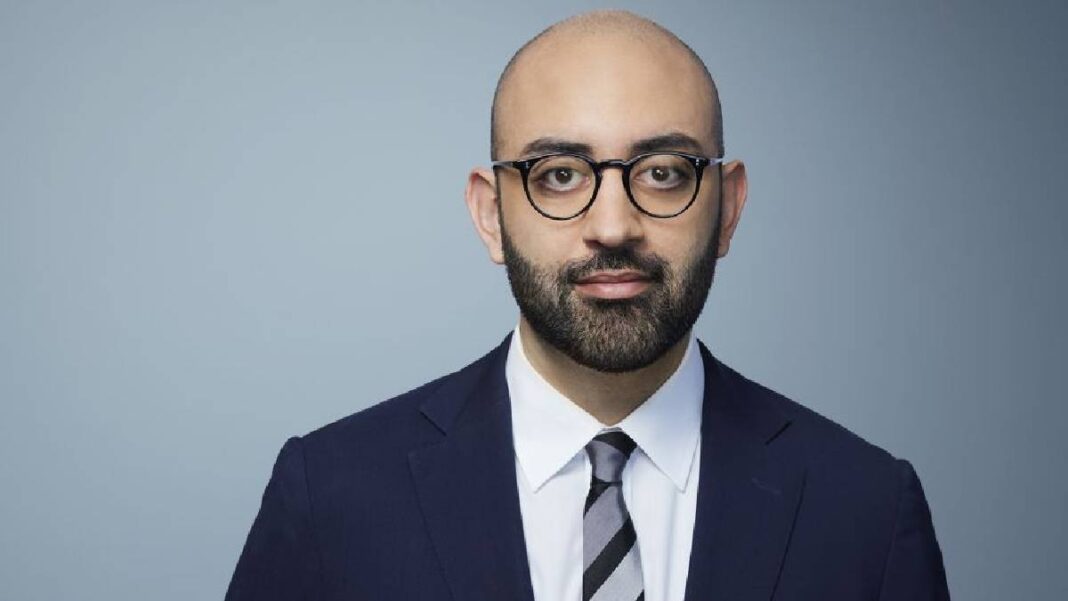In a surprise announcement last month, CNN media reporter Oliver Darcy revealed he was leaving the cable news giant to launch his own digital media endeavor called Status.
Darcy had helmed the Reliable Sources newsletter after the high-profile 2022 departure of Brian Stelter, who founded the publication. A well-respected figure in the news media world, Oliver Darcy had grown a large following for his reporting on television, Hollywood, and the intersection of politics and media.
However, the chance to build something for himself grew to be too great as his contract with CNN was expiring.
“An entrepreneurial itch sort of formed. One that I couldn’t quite get rid of,” he admitted.
Oliver Darcy isn’t the first news media member to attempt to strike out on their own. Many have done so in recent years, which led him to consider the move more and more after each other media member did something similar.
“It was sort of something that was a gradual decision. Obviously, as a media reporter, I was covering other people leaving legacy news organizations and going out and establishing themselves in independent ventures,” he said. “So that has been something that had been intriguing to me for a while. And as my CNN deal inched closer to expiring, it was definitely in the back of my mind.”
It’s never been easier to launch a media startup, and Darcy is keenly aware of that fact. He noted that even as recent as a few years ago he wouldn’t have been able to undertake such an endeavor. However, with the rise of podcasting, and newsletter services like Substack or Beehiiv — as well as new payment processing technology, he can now reach similar audiences that CNN digitally provided.
Oliver Darcy said that he considered the proposition for several months before deciding roughly six weeks before his contract ended that he finally decided to launch Status.
There wasn’t one seminal moment that he decided he was leaving the network and starting his own thing. He joked that “It might have been easier if there had been,” when asked if there was any animosity toward CNN management or Warner Bros. Discovery that led him to create his own digital media company. “It wasn’t like that,” he said.
Darcy joked that the surprise announcement, with came from the introduction of his new newsletter and subsequent final piece for Reliable Sources, “effectively melted my phone,” after the response from many inside the industry.
“The reaction has been really, really good. A lot of the audience that was reading me at CNN, including those keys industry players, have switched over and are now reading me at Status. And I think that’s because they like the journalism I’m producing. They liked it at CNN and now they like it at Status. I think the quality of the product has only increased.”
With the new newsletter, Darcy is writing it five days per week as opposed to his previous four-day-per-week schedule with CNN. And with that extra day also comes future plans to expand past the media reporting newsletter.
“Definitely podcasts,” Darcy said when asked where the other areas of growth and content might be. “I’ve been doing a Sunday spotlight where I talk to a key industry figure and ask them questions. I’d love to do a version of that on a podcast where people can interact in a different way and there could be some video involved. I’d love to do digital video. There are obviously live events and panels that could be compelling for this audience. So there’s really no shortage of avenues to go down. But for now, I’m trying to establish the core product, which will be this nightly newsletter, and go from there.”
While many may not value the role of a media reporter, Oliver Darcy believes the position is a pivotal one in the journalism landscape due to the plethora of intersections seen throughout the various media formats and genres Americans consume.
“It is essential if you want to understand society today … If you want to understand some of the big themes in American culture or really global culture in society, you have to understand what’s going on in this industry. That’s what I aim to do every night: connect the dots for readers,” he said, pointing that what could happen at a major movie studio could affect network programming of news organizations, and vice versa.
“There’s a tendency to — wrongly — to put off media reporting as niche, when actually it’s at the epicenter of everyone’s lives. If you consider someone like Taylor Swift or the NFL, that’s a media platform. The debates that everyone is gonna watch, that’s in regards to media. The social media apps that you open every day. They’re technically tech platforms, but they’re media. They’re called social media.
“There’s a lot of resources devoted to purely politics in a lot of newsrooms, and media reporting can be relegated to a second thing that people do. I really think it should be one of the top places of investments if you’re a news organization. So I want to build Status and make it the place people go to for this type of news.”

Garrett Searight is Barrett Media’s News Editor, which includes writing bi-weekly industry features and a weekly column. He has previously served as Program Director and Afternoon Co-Host on 93.1 The Fan in Lima, OH, and is the radio play-by-play voice of Northern Michigan University hockey. Reach out to him at Garrett@BarrettMedia.com.







